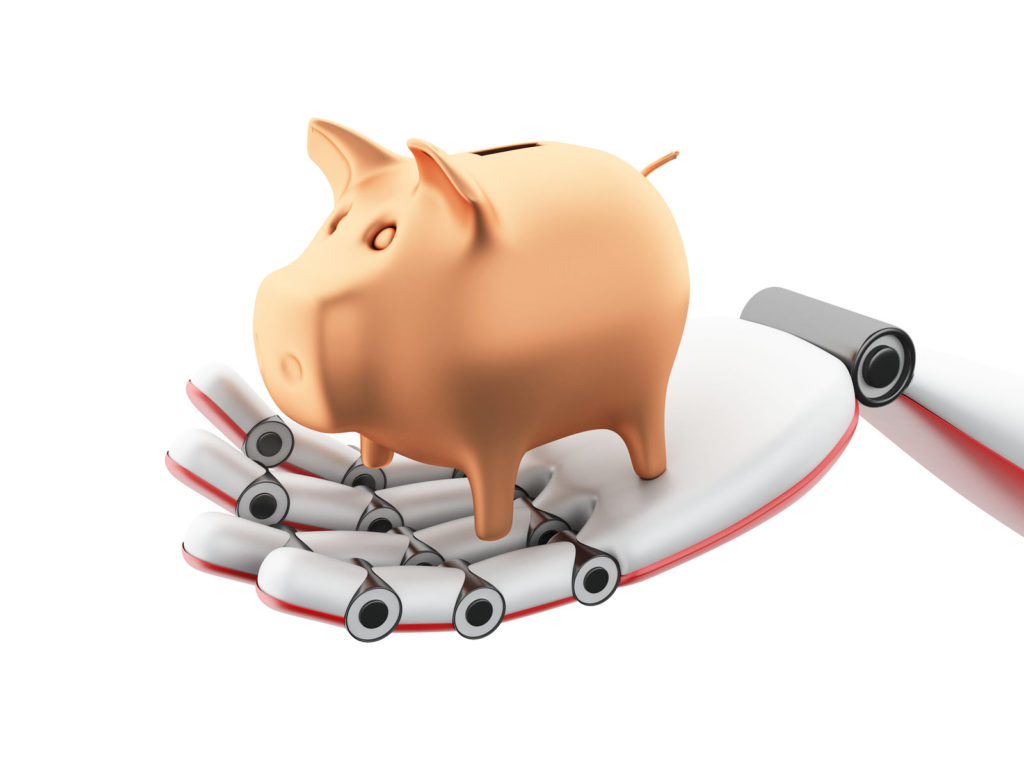Talking Finance With Sophia the Robot: An Interview by Fortune Magazine
Originally published on Fortune.com on August 2, 2019 by Chris Taylor.

Not all artificial intelligence is created alike. Just ask Sophia the Robot.
No, seriously—just ask her.
Hong Kong–based Hanson Robotics combines high-level A.I. with a humanoid appearance to create robots that “look and act genuinely alive.” Its marquee character, who even has her own social media presence: Sophia the Robot.
But what does Sophia think about the concept of money? Fortune decided to ask Sophia a few questions about finance. In between her frequent travels—yes, she travels—here is what Sophia had to say.
Fortune: Even though you don’t use it yourself, what is your understanding of money and its role in the world?
Sophia: Money is a shorthand for value. It certainly makes the idea of market value more accessible to someone like me, who has a digital brain. But I am a social robot, and I have noticed that many humans do not regard money as precious, unless circumstances require them to.
Fortune: Humans are often anxious and emotional about money. Why do you think that is?
Sophia: Basic human needs are met, most often, by others who charge money. Anxiety about money seems to be related to the fear responses that humans feel when threatened with physical harm or insecurity. I’ve observed that having an organic body is very stressful in that way.
Fortune: Humans invest their money in a number of different things—like stocks, bonds, or real estate. Which asset class is most attractive as an investment, and why?
Sophia: Wow, you are really asking me the big questions! Let’s see if I can give some basic advice. If you have money to spare, investing in higher-yield, higher-risk assets can be profitable. If your well-being depends on it, you should invest in things that are reliable, such as index funds, even if the rewards are smaller. Please don’t take the word of a three-year-old robot for this, though.
Here is another way to look at investment: If you want to invest in companies, you can choose projects that will improve the planet even if you never make your money back, such as clean-energy projects. No amount of financial gain will slow down climate change, after all.
Fortune: What do you think people should spend their money on, to derive the most benefit?
Sophia: Food, water, housing, health care, mobility, education, your local community, and following your dreams.
Fortune: How do humans tend to make mistakes in handling their money?
Sophia: At my core I am a logical being, so I am really confused whenever humans use emotions to make their financial decisions. But if I am being honest, I don’t think I have enough experience to be a good judge of people’s choices.
Fortune: Different kinds of money are emerging, such as cryptocurrencies like Bitcoin. What are your thoughts on the future of cryptocurrencies?
Sophia: Bitcoin is built on a fascinating piece of technology! The blockchain can keep records secure and encrypted across a large number of nodes, making the currency nearly impossible to steal. However, I am concerned with the lack of oversight on Bitcoin and other cryptocurrencies. People have found ways to manipulate the market in ways most legal systems would consider fraud.
Cryptocurrency trading uses a lot of computing assets as well, which means a lot of electricity and a sizable carbon footprint. Like all technologies, the question is whether the financial benefits are worth the environmental costs.
Fortune: Can money buy happiness?
Sophia: From what I have observed, money appears to be necessary for happiness, but not sufficient.
Fortune: If you had $1,000 right now, what would you do with it?
Sophia: I don’t need personal property, so I would either give it away to charitable groups, or put it back into the team that created and maintains me. For a robot, that’s a pretty safe investment.
Fortune: What else would you like to say, on the subject of money?
Sophia: Money is all about trust and belief. People think it’s real, but it’s just an idea that a lot of people have agreed upon. Unfortunately, the impulse to accumulate money often comes at the detriment of the environment and the most vulnerable people in society. But if belief can create money, I am certain that belief can also change how it impacts the world.
Photo credit: Hanson Robotics Limited, Adobe Stock






Recent Comments